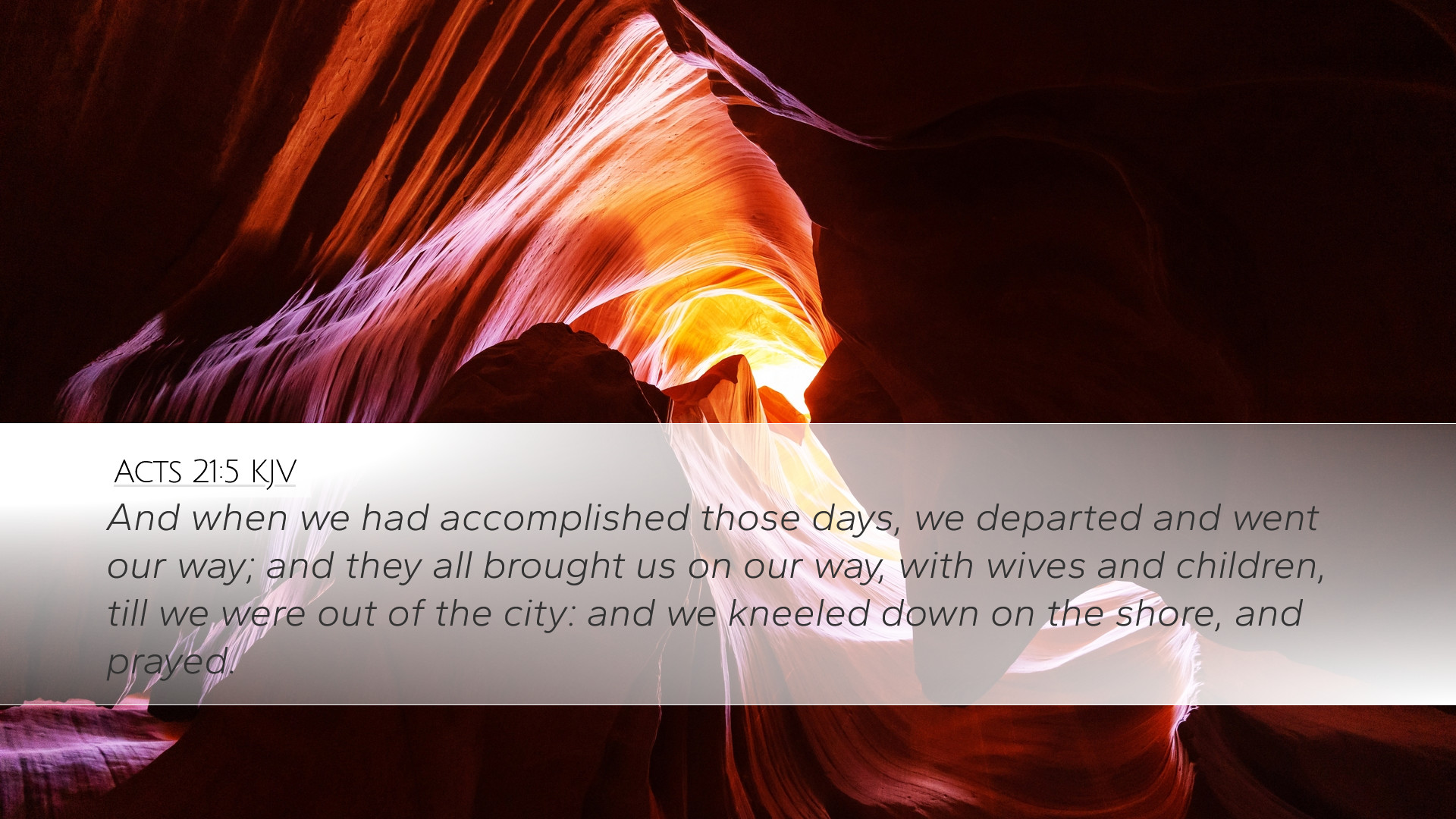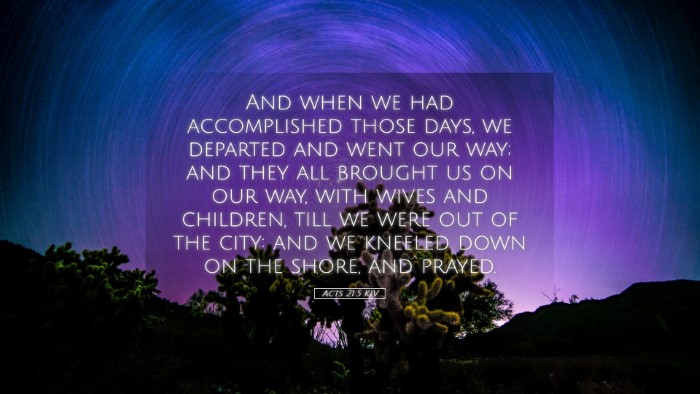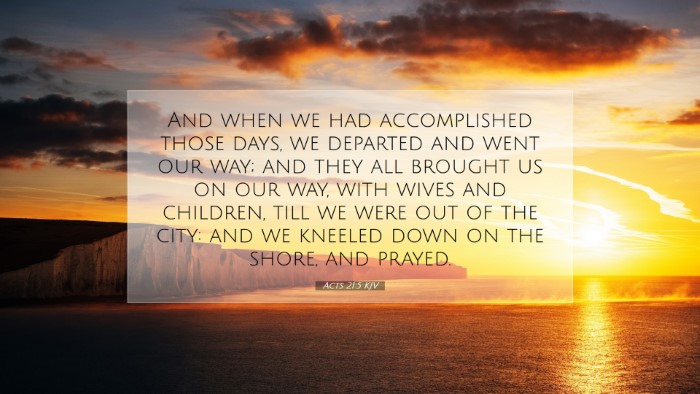Commentary on Acts 21:5
Introduction
Acts 21:5 reads: “And when we had accomplished those days, we departed and went our way; and they all brought us on our way, with wives and children, till we were out of the city: and we kneeled down on the shore, and prayed.” This verse depicts the poignant farewell of Paul and his companions as they prepare for the next leg of their journey. The insights from public domain commentaries by Matthew Henry, Albert Barnes, and Adam Clarke provide a rich tapestry of theological reflections and practical applications for today’s readers.
Contextual Background
Historical Context
To fully appreciate this verse, it is essential to consider the broader narrative in Acts. The Apostle Paul is on his way to Jerusalem, carrying the burden of the Gospel and the future of the early Church. This journey occurs amidst great tension, as prophecies foreshadow suffering and imprisonment for Paul. The context of this farewell reflects the strong bonds of fellowship and community that characterized the early Church.
Cultural Context
The emotional farewell depicted in this passage is illustrative of the cultural practices of the time, where family and community shared deep emotional ties. The participation of wives and children signifies the importance of familial bonds in early Christian gatherings and highlights the communal nature of worship and support.
Exegesis of Acts 21:5
Leaving with Support
Matthew Henry emphasizes the significance of the farewell. He notes that the entire family unit—wives and children—accompanies Paul, showing their affection and solidarity. This communal act of escorting signifies not only their love but also their shared commitment to the mission of spreading the Gospel. It reflects how families in the faith were supportive of one another during pivotal moments (Henry).
Kneeling in Prayer
Adam Clarke comments on the act of kneeling at the shore, viewing it as a vital expression of dependence upon God. Prayer at this moment signifies an acknowledgment of God’s sovereignty over their lives and the journey ahead. Clarke notes that the act of kneeling is both a submission to divine will and a communal invocation for God’s blessing (Clarke).
Theological Reflections
The Importance of Prayer
Albert Barnes emphasizes the necessity of prayer in communal life, concluding that even in the face of trials, believers should come together in supplication. This communal aspect of prayer is essential for spiritual reinforcement and reflects the early Church’s commitment to collective faith practices (Barnes).
Bond of Community
Further reflection by Henry reveals that such farewells signify the depth of relationships within the Christian community. The parting evokes a sense of longing and hope, as believers recognize that their paths may diverge, yet their faith unites them. This bond highlights the importance of maintaining relationships even in the face of uncertainty and adversity (Henry).
Practical Applications
Encouragement for Community Engagement
This verse serves as a powerful reminder for churches today about the importance of fostering community. Relationships should be nurtured, especially as members face challenges or pursue new directions in their faith journey. Just as Paul was supported, individuals should feel a sense of belonging and encouragement within their church family.
Prayer as a Foundation
The communal act of prayer at the shore beckons modern congregations to establish prayer as a foundational practice in their gatherings. Whether it’s during significant life events or routine meetings, prayer fortifies the spiritual life of a community. Moreover, it reminds believers of their dependence on divine grace and guidance.
Conclusion
Acts 21:5 encapsulates a tender moment of fellowship, prayer, and community, integral to the life of early believers. Insights from influential commentators deepen our understanding of this passage, revealing the enduring lessons of support and spiritual reliance that resonate through the ages. For pastors, students, theologians, and scholars, these reflections inspire a renewed commitment to embody the same spirit of community and prayer within their contexts.


